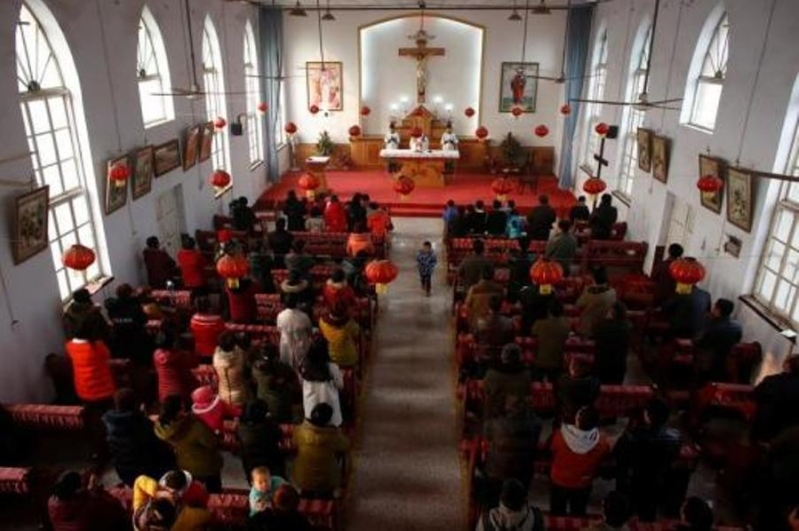
A top Asian cardinal has called the Pope's secretary of state to step down over a controversial deal between the Chinese government and Catholic leaders, saying any deal with Beijing would be an "incredible betrayal" to the Catholic faith.
The provisional agreement, which has the stated aim of allowing "the wounds of the past to be overcome," was announced on September 22. Under the agreement, the Vatican will recognize the legitimacy of bishops appointed by the Chinese government. The appointment of seven bishops approved both by Beijing and the Vatican will lead, said Pope Francis, to the "complete communion of all Chinese Catholics." The Vatican also expressed hope that the believers in the Asian country "will feel fully Catholic and fully Chinese."
Speaking to Reuters, Cardinal Joseph Zen, the most senior Catholic cleric in China, said he believed the two sides were making a "secret deal" and called on Parolin to resign.
"They're giving the flock into the mouths of the wolves. It's an incredible betrayal," he said. "I don't think [Parolin] has faith. He is just a good diplomat in a very secular, mundane meaning."
Because the Vatican is also under pressure for purportedly covering up a sex abuse scandal in the U.S., Zen suggested this China deal would further add to the Church's vulnerability.
"The consequences will be tragic and long lasting, not only for the church in China but for the whole church because it damages the credibility. Maybe that's why they might keep the agreement secret."
While some have praised the deal for allowing the Catholic Church to gain access to potentially millions of converts across China, others have criticized Pope Francis for willingly join forces the increasingly authoritarian Chinese government, which is officially atheist.
China's roughly 12 million Catholics are divided between an underground Church that swears loyalty to the Vatican, and the state-supervised Catholic Patriotic Association.
Speaking to Reuters, Zen said he believed only half the underground church in China would accept a deal and was concerned how the remainder might react.
"I'm afraid they may do something irrational, they may make rebellion," he said, adding that any deal with atheist China would deal a significant blow to Pope Francis' credibility. "It's a complete surrender. It's a betrayal (of our faith). I have no other words."
Amnesty International China Researcher Patrick Poon told CNN the agreement created serious concerns for freedom of religion in China in the future.
"Such an agreement will effectively set a very bad precedent for other religions (in China) ... It will put Catholics under a lot of pressure," he said.
On Twitter, Republican Senator and practicing Catholic Marco Rubio asked how the Vatican could justify the deal it had struck with the Communist Party.
"They are giving a government (an atheist one) influence in choosing bishops which (the Church says) are regarded as transmitters of the apostolic line. How does secular (and atheist) interference in that decision not break that line?" Rubio said.






